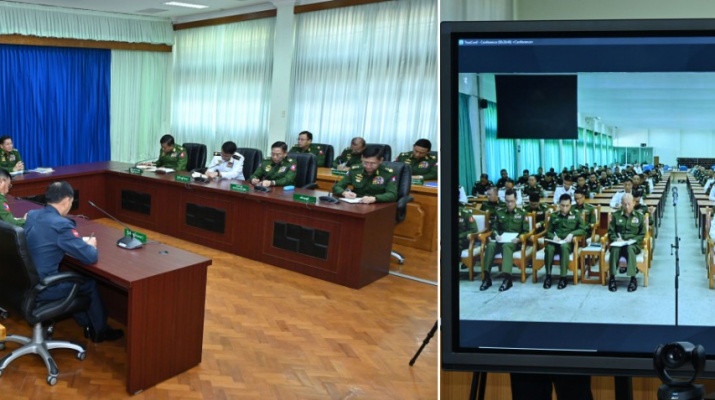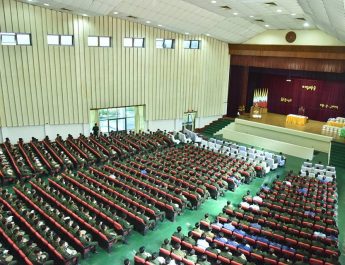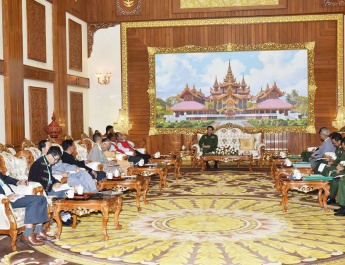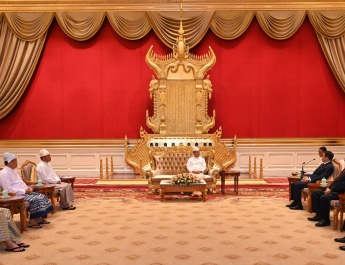Nay Pyi Taw February 27
Chairman of State Administration Council Commander-in-Chief of Defence Services Senior General Min Aung Hlaing addressed senior officer instructors and senior officer trainees of National Defence College through Video Conferencing this morning.
Present together with the Senior General were Vice Chairman of State Administration Council Deputy Commander-in-Chief of Defence Services Commander-in-Chief (Army) Vice-Senior General Soe Win, Chief of General Staff (Army,Navy and Air) General Maung Maung Aye, senior military officers from the Office of the Commander-in-Chief, and the NDC commandant.
In his address, the Senior General said in the past, only senior military officers were chosen for the NDC course, but now, senior civilian officers are also allowed to attend the course.
Lack of political, economic, administrative and defence outlooks in performances may cause setbacks for the country.
Head of civil servants must take into account the four outlooks in serving duties. In fact, it is a valuable course in which trainees are taught to hold discussions among them on the issues that they have studied. Hence, trainees should strive to become senior officers beneficial for the country.
Trainees must be serious in applying their findings for their life and the country.
As regards the political sector, the country’s history stands witness to the national sovereignty and precise area of territorial waters. Although the country has gained progress throughout the successive eras, it slowly left behind some other countries including certain neigh bourse. The country has weaknesses in education, so, it lagged behind in statistics and mechanical knowledge. In this regard, the country must take this shortage as a lesson and seek beneficial means for it.
The Senior General then explained in detail Myanmar’s independence struggle launched after the colonialists had occupied it to grab its resources, rivalry between socialism and capitalism during pre-independence period and post-independence period, eruption of ethnic armed conflicts due to colonialists’ divide-and-rule administration and political disagreements, armed conflicts and disagreements in economic policy during the post-independence period, Tatmadaw’s restoration of State duties due to a halt in the then government’s functions resulting from socialism’s weak management mechanism that led to economic down turn, crisis and national deterioration, the march to multiparty democracy in accord with the public wish in the pater periods, ratification of the Constitution in 2008 through a referendum to adopt democracy after it was thoroughly discussed by groups representing all walks of life at the National Convention, the assumption of State duties by the SAC in accord with the 2008 Constitution because of the failure to solve the vote rigging issue of 2020 multi-party general election in accord with the law, SAC’s adoption and implementation of two political goals and two national goals, preparations to strengthen the country’s road to multi-party democracy and to hold a free and fair election, adoption and implementation of visions and objectives for national development, educated human resources production plans, ongoing task to improve political, economic and defence driving forces which are essential for the country.





